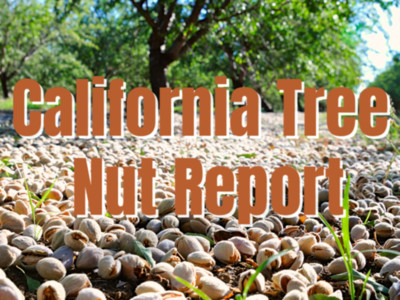Surgeon General Report & Spending Bill
Surgeon General Report & Spending Bill plus Food Forethought. I'm Greg Martin with today's Northwest Report.A new report by the Surgeon General shows that the consequences of smoking are much worse than originally thought. Since the first Surgeon General's report in 1964 more than 20 million premature deaths can be attributed to cigarette smoking. The report also says that the tobacco epidemic was initiated and has been sustained by the aggressive strategies of the tobacco industry, which has deliberately misled the public on the risks of smoking cigarettes. It also states that exposure to secondhand tobacco smoke has been causally linked to cancer, respiratory, and cardiovascular diseases, and to adverse effects on the health of infants and children.
The omnibus spending bill contains key funding for USDA farm, nutrition, trade and rural development programs. The trillion dollar-plus bill that helps prevent another government shutdown until at least October 1st continues major nutrition programs, includes a key policy on overseas food aid and boosts rural development. American Farm Bureau's RJ Karney.
KARNEY: Rural development was a big winner within this appropriations bill. There was a $180-million dollar increase in funding for USDA Rural Development and that increase went towards Rural Housing Assurance Fund, the Rural Business Cooperative Service and also telecommunication and electrification loads.
Now with today's Food Forethought, here's Lacy Gray.
With less than two weeks remaining for comments to be submitted regarding the EPA's proposal to cut the amount of corn ethanol required under the Renewable Fuels Standard things are really starting to heat up. In fact, some farmers have reported that they are receiving phone calls from the American Petroleum Institute urging them to submit comments against the RFS. The API would like as many farmers as possible to sign on to a letter stating that ethanol is poor for many reasons, claiming it raises food costs and is harmful to car engines. So are these claims true. According to the American Coalition For Ethanol the answer would be no. ACE says that "the role of corn and ethanol in grocery prices has been grossly exaggerated by critics who have much to gain in keeping ethanol's potential limited." And in fact, "energy prices have a much more dramatic impact on food prices because all foods are dependent upon this expensive energy for processing, packaging, and transportation." There are many myths surrounding ethanol, we just have to sort through them to uncover the true science.
Thanks Lacy. That's today's Northwest Report. I'm Greg Martin on the Ag Information Network.














